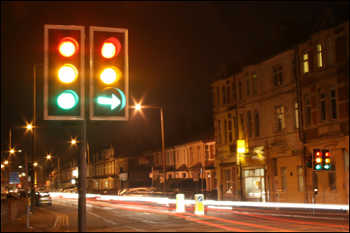The Government’s traffic management strategy should be replaced by policies that ‘harness voluntary cooperation among road-users’, a new report has argued.
The Institute of Economic Affairs (IEA) claimed the current approach policy has negative social and economic effects.
The report, Seeing Red: Traffic Controls and the Economy, estimates that approximately 80% of traffic lights in the UK ‘could be ripped out’.

DfT is considering expanding £20m new station fund
However Transport Network sources in highways and traffic management dismissed the report, with one senior figure saying it was 'absolute rubbish'.
The IEA argues that a proliferation in traffic regulations imposes a heavy burden on the economy. It says that a two-minute delay to every car journey represents a loss to the economy equivalent to almost 1% of Gross Domestic Product.
The report claims that there has been a 25% increase in the number of traffic lights in England since 2000 while bus lanes in London almost trebled from 59 miles to 172 miles between 1997 and 2007.
The IEA says traffic lights cause drivers to brake and accelerate, which adds to fuel consumption and increases emissions, noise pollution and harmful health effects. But it says: ‘a shift to public transport delivers few gains if motorists shift to noisy and polluting diesel buses, or if energy-intensive new rail infrastructure forms part of the policy package.’
The report argues for a ‘shared space’ approach and the removal of regulations, ‘including the unfair rules that give some vehicles priority over others’.
Yesterday, the Department for Transport announced funding for a number of local schemes that will give owners of plug-in cars the right to drive in bus lanes in city centres. Transport for London also announced that it expects to have 116 new bus priority schemes in place by the end of April, as part of an ongoing £200m investment.